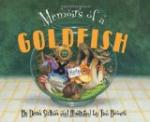I took nothing that was not easy and about which I did not already know a little something. I attended the minimum number of lectures required, did the smallest amount of reading possible and, by cramming vigorously for three weeks at the end of the year, managed to pass all examinations creditably. I averaged, I suppose, outside of the lecture room, about a single hour’s desultory work a day. I really need not have done that.
When, for example, it came time to take the examination in French composition I discovered that I had read but two out of the fifteen plays and novels required, the plots of any one of which I might be asked to give on my paper. Rather than read these various volumes, I prepared a skeleton digest in French, sufficiently vague, which could by slight transpositions be made to do service in every case. I committed it to memory. It ran somewhat as follows:
“The play”—or novel—“entitled —— is generally conceded to be one of the most carefully constructed and artistically developed of all ——’s”—here insert name of author—“many masterly productions. The genius of the author has enabled him skilfully to portray the atmosphere and characters of the period. The scene is laid in —— and the time roughly is that of the —th century. The hero is ——; the heroine, ——; and after numerous obstacles and ingenious complications they eventually marry. The character of the old ——“—here insert father, mother, uncle or grandparent, gardener or family servant—“is delightfully whimsical and humorous, and full of subtle touches. The tragic element is furnished by ——, the ——. The author touches with keen satire on the follies and vices of the time, while the interest in the principal love affair is sustained until the final denouement. Altogether it would be difficult to imagine a more brilliant example of dramatic—or literary—art.”
I give this rather shocking example of sophomoric shiftlessness for the purpose of illustrating my attitude toward my educational opportunities and what was possible in the way of dexterously avoiding them. All I had to do was to learn the names of the chief characters in the various plays and novels prescribed. If I could acquire a brief scenario of each so much the better. Invariably they had heroes and heroines, good old servants or grandparents, and merry jesters. At the examination I successfully simulated familiarity with a book I had never read and received a commendatory mark.
This happy-go-lucky frame of mind was by no means peculiar to myself. Indeed I believe it to have been shared by the great majority of my classmates. The result was that we were sent forth into the world without having mastered any subject whatsoever, or even followed it for a sufficient length of time to become sincerely interested in it. The only study I pursued more than one year was English composition, which came easily to me, and which in one form or another I followed throughout my course. Had I adopted the same tactics with any other of the various branches open to me, such as history, chemistry or languages, I should not be what I am to-day—a hopelessly superficial man.




